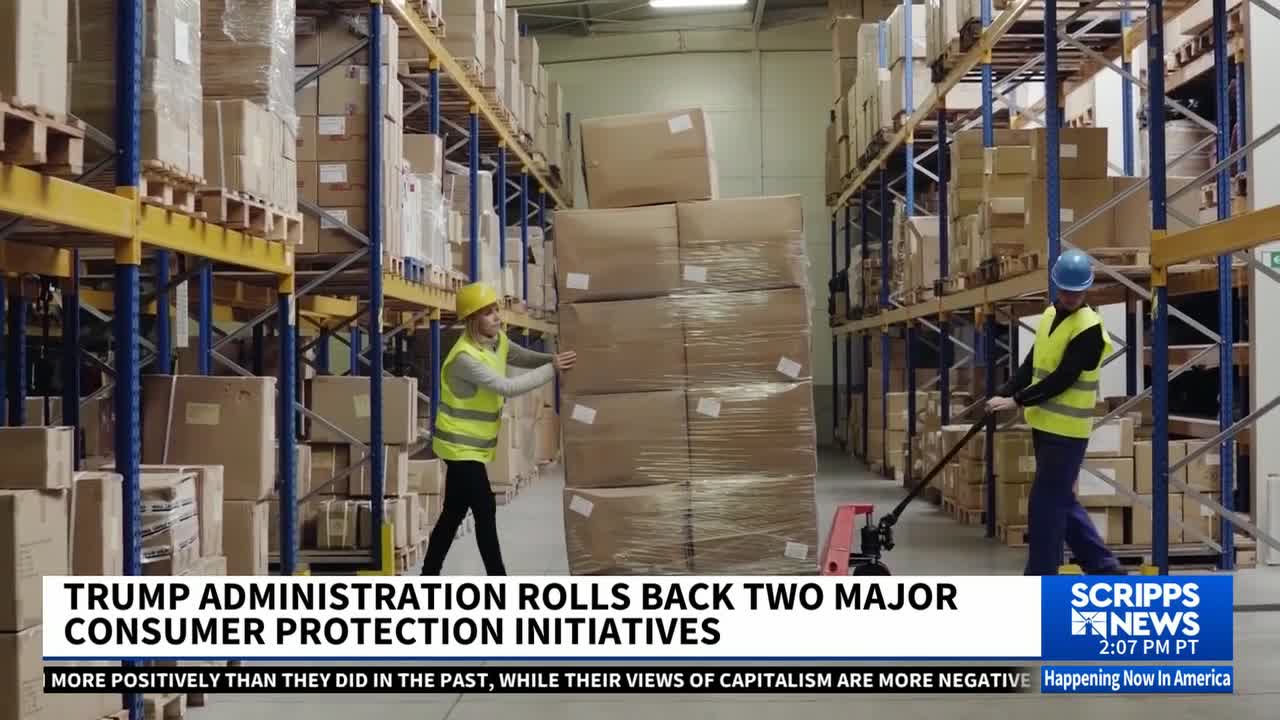The Trump administration is rolling back two major Biden-era consumer protection efforts: one affecting air travel and the other impacting millions of American workers.
Labor Economist Aaron Sojourner at W.E. Upjohn Institute for Employment Research says the moves fit a broader pattern.
"We're seeing very aggressive changes. For instance, the current administration has attempted to shut down the entire Consumer Financial Protection Bureau, which is the only independent agency that ensures customers are protected in the financial marketplace. Nothing like that has been done before."
A Department of Transportation rule that would have required airlines to pay customers for delays or cancellations is being scrapped.
Attorney and law professor Danny Karon warns this will shift more costs onto travelers.
"We're looking at really a get out of jail free card for the airlines, because I don't know any other business where you could screw up and there's no consequence."
Karon recently authored a book called "Your Lovable Lawyer's Guide to Legal Wellness: Fighting Back Against a World That's Out to Cheat You," spending a chapter on airline regulations.
The rule, championed by President Joe Biden and modeled after European rules, applied to delays or cancellations caused by the airline — requiring payouts between $200 and $750, along with meals, lodging, and rebookings. Airlines opposed it, saying it would lead to higher ticket prices.
Consumer advocates argue that without the law, airlines will have fewer incentives to maintain reliability.
"The rule being rolled back really would have given compensation to flyers for delayed and canceled flights. For international and domestic flights, now they can't get it. So, what's your remedy? What's your remedy if you're really screwed over?" said Karon.
Another rule no longer going into effect — the ban on noncompete agreements in the workplace.
The ban, finalized last year by the Federal Trade Commission, is now being reversed by the very agency that created it.
"It's been a policy issue that's been building for over 15 years, and it's an issue where there's been actually a lot of debate," said Sojourner.
One in five Americans — at least 30 million workers — are subject to noncompete agreements. Sojourner says many of them are far from corporate executives.
"The typical worker with a noncompete is paid by the hour, and they make a median of about $14 an hour. So imagining that this is all executives and high-level scientists is completely wrong," he said.
Business groups sued to overturn the rule, and a federal judge questioned the FTC's authority. In response, the Trump administration has dropped the appeal.
Sojourner said research shows the agreements can harm workers and innovation.
"People have done very careful studies of states that changed their policies and looked at how workers' wages were affected. And what they've found is that those arguments about enhancing efficiency don't hold up to the data."
An FTC official said in a news release that antitrust laws already protect workers from restrictive contract abuses, allowing them to switch jobs or start their own businesses. The agency says it will continue to focus on targeted enforcement to protect workers rather than a nationwide ban.
This story was reported by a journalist and has been converted to this platform with the assistance of AI. Our editorial team verifies all reporting on all platforms for fairness and accuracy.











